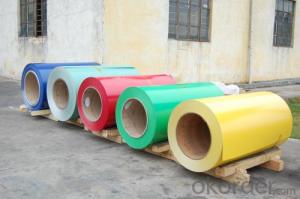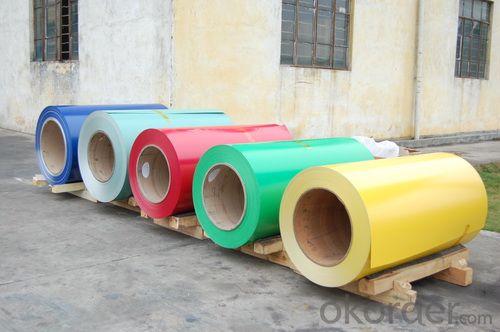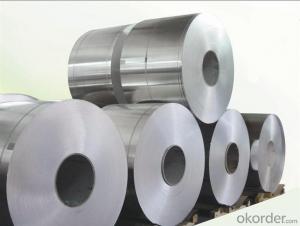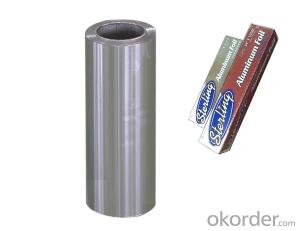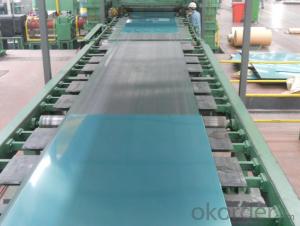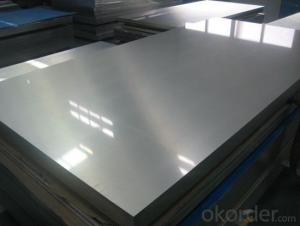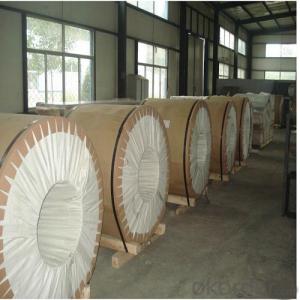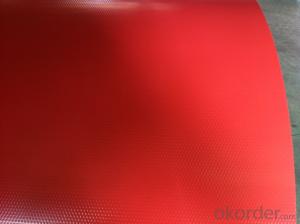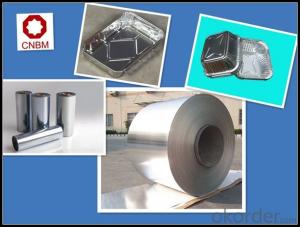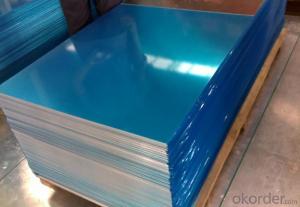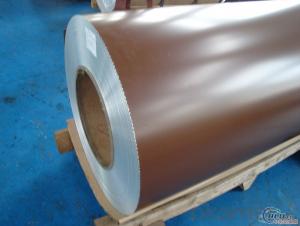1/4 Sheets Aluminum - High Quality Aluminium Coil PVDF Coating Painted
- Loading Port:
- Shanghai
- Payment Terms:
- TT OR LC
- Min Order Qty:
- 8 m.t.
- Supply Capability:
- 2000 m.t./month
OKorder Service Pledge
OKorder Financial Service
You Might Also Like
Specification
Structure of Aluminium Coil PVDF Coating Painted Hight Quality Description:
Coated aluminum coil/sheet are of a wide range of colors, which gives wonderful appearance no matter in residential and commercial constructions of great exhibition centers.
The coated aluminum coil/sheet have been widely used in the fields of construction and decoration( garage doors, ceiling etc.), electronic appliances, lighting decoration, air-condition air pipes, sandwich panels and drainages etc.
Main Features of the Aluminium Coil PVDF Coating Painted Hight Quality:
1) High flexibility
2) Impact resistance
3) Excellent weather-proof durability
4) Anti-ultraviolet
5) High erosion resist
Images of the Aluminium Coil PVDF Coating Painted Hight Quality:
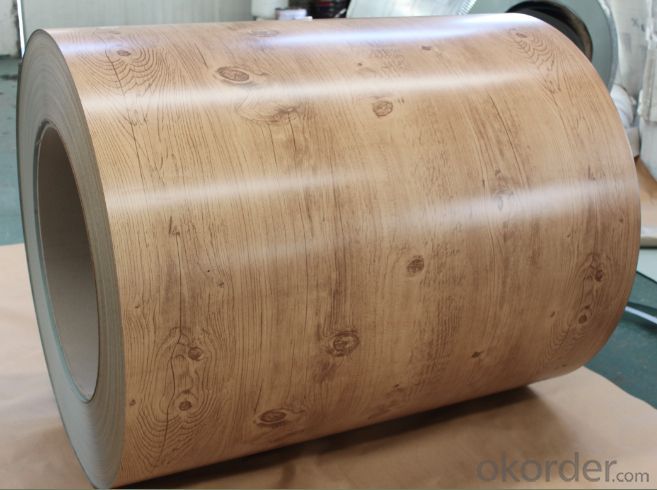
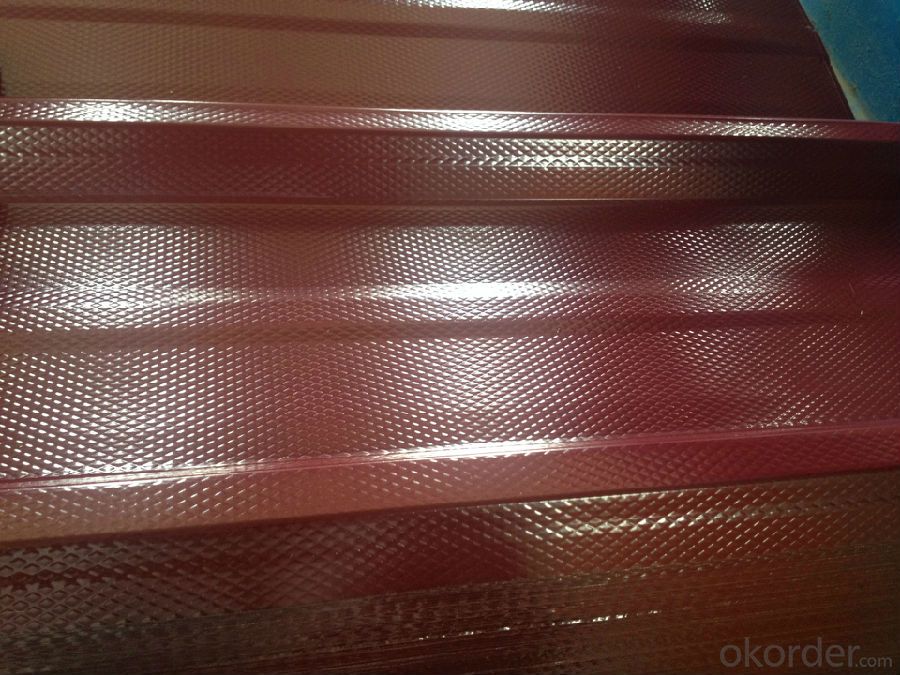
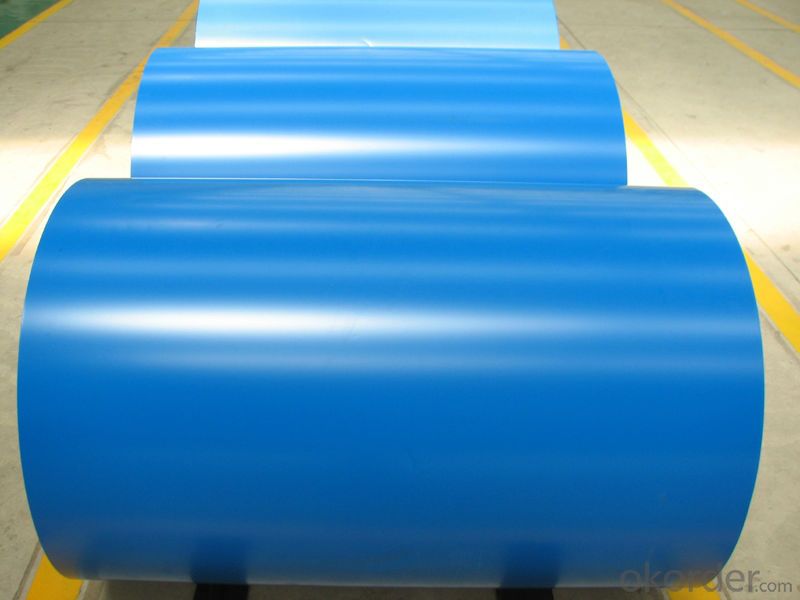
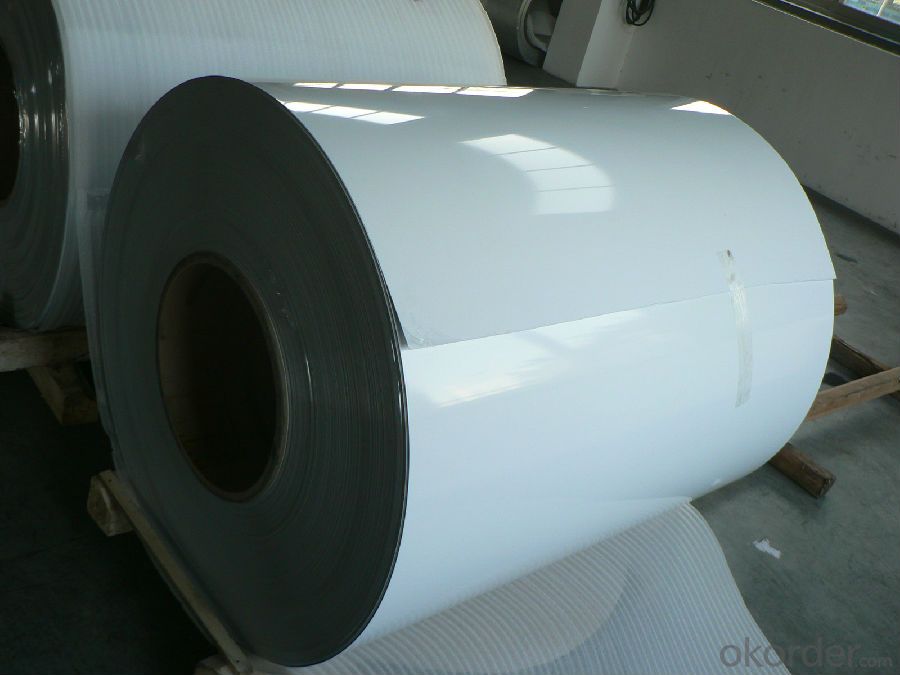
Aluminium Coil PVDF Coating Painted Hight Quality Specification:
Alloy | A1100,A3003,A1050,A8011 etc |
Temper | H16,H18,H24 |
Thickness | From 0.024mm to 1.2mm |
Width | Standard width:1240mm |
Special width:1300mm,1520mm,1570mm,1595mm | |
Diameter | Standard dia:1200mm |
Interior dia:150mm,405mm,505mm | |
Weight | 2.5 T/coil,3.0 T/coil |
Coating | PE, PVDF, AC |
Surface | Embossed, mill finish, coated |
Color | AS to code RAL |
Gloss | 10-90%(EN ISO-2813:1994) |
Coating Thickness | PE: more than 18 micron |
PVDF: more than 25 micron | |
Coating Hardness (pencil resistance) | More than 2h |
Coating adhesion | 5J(EN ISO-2409:1994) |
Impact Resistance | No peeling or cracking(50 kg/cm,ASTMD-2794:1993) |
Flexibility (T-bend) | 2T |
MEK resistance | More than 100 |
FAQ Aluminium Coil PVDF Coating Painted Hight Quality:
a.What is monthly capacity
---CNBM is one stated own company and our monthly capacity is about 2000tons.
b. Now which countries do you export your goods?
---Now we export to South East Asia,Africa, North America,South America ect.
- Q: What are the different methods of surface patterning aluminum sheets?
- There are several methods of surface patterning aluminum sheets, including embossing, etching, engraving, and laser cutting. Embossing involves creating raised patterns or designs on the surface of the sheet, while etching involves chemically removing material to create patterns. Engraving is a process of cutting or carving designs into the surface, and laser cutting uses a laser beam to precisely cut or etch patterns onto the sheet. These methods offer various options for creating decorative or functional surface patterns on aluminum sheets.
- Q: What will affect the performance of the aluminum ingot in the process of casting?
- In our daily industrial raw materials called aluminum ingot, according to the national standard (GB/T1196-2008) should be called "remelting with aluminum ingot", but we are used to "aluminum ingot"". It is with the alumina cryolite produced by electrolysis.
- Q: Is aluminum sheet resistant to UV rays?
- Yes, aluminum sheet is resistant to UV rays.
- Q: Are aluminum sheets resistant to chemicals?
- Aluminum sheets, in general, possess resistance to a wide range of chemicals. This is due to the presence of a natural oxide layer on the surface of aluminum, which acts as a protective shield against corrosion and chemical reactions. The stability of this oxide layer enables it to withstand the effects of most acids, alkalis, and organic solvents. However, it should be noted that certain chemicals, such as strong acids or bases, as well as some halogenated compounds, have the capacity to corrode aluminum. Moreover, prolonged exposure to particular chemicals or extreme conditions may compromise the integrity of the oxide layer, rendering aluminum more susceptible to corrosion. Consequently, when considering the use of aluminum sheets in specific applications, it is crucial to carefully evaluate the chemical environment and potential interactions.
- Q: Can aluminum sheets be welded or soldered?
- Aluminum sheets have the capability to undergo both welding and soldering processes, although the techniques for each differ significantly. When welding aluminum, a TIG (Tungsten Inert Gas) or MIG (Metal Inert Gas) welding process is typically employed, necessitating a high heat source and a filler material to connect the sheets. This process is generally more demanding when compared to welding steel due to aluminum's high thermal conductivity and lower melting point. On the other hand, soldering aluminum involves utilizing a low-temperature solder and flux to bond the sheets together. Usually, specialized solders like aluminum solder or solder with a high tin percentage are employed. Soldering aluminum is typically less prevalent and more intricate than soldering other metals due to the presence of an oxide layer on aluminum, which hinders proper adhesion. To summarize, while both welding and soldering can be utilized for joining aluminum sheets, welding is the more commonly employed method due to its superior strength and durability. Soldering aluminum presents additional challenges due to the requirement for specialized solders and the presence of the oxide layer.
- Q: What are the colors of iron sheet and aluminum sheet?
- red, white
- Q: is aluminum foil spacer poisonous after heating?
- It’s a kind of thermoprint material made by pressing the aluminum into sheet, and owing to its similar thermoprint effect to silver foil, so it’s called fake silver foil. Aluminum has soft texture, good ductility, and is silver white, if we use sodium silicate to paste the sheet after pressing on the offset paper, making aluminum foil, the foil can be printed. But aluminum foil is easy to be oxidized and darkens, rubbing and touching will make it darken, so it doesn’t suit for the thermoprint of books’ cover that needs to be preserved for a long time.
- Q: on an hot day, which will stay cooler longer...aluminum, or copper? why?thanks!
- copper aluminum’s conductivity is lower than copper.
- Q: Can the aluminum sheets be used for manufacturing power distribution systems?
- Yes, aluminum sheets can be used for manufacturing power distribution systems. Aluminum has excellent conductivity properties, making it a suitable material for transferring electrical power. Additionally, aluminum sheets are lightweight, corrosion-resistant, and cost-effective, making them a popular choice in the manufacturing of power distribution systems.
- Q: Are aluminum sheets suitable for food storage applications?
- Indeed, food storage applications can make good use of aluminum sheets. The food industry widely employs aluminum due to its lightweight nature, durability, and impressive thermal conductivity characteristics. It is common to fashion food storage containers, foil wrap, and trays from aluminum sheets. These sheets effectively shield against moisture, oxygen, and light, thereby preserving the freshness and quality of food. Moreover, aluminum is non-toxic and remains unaffected by acidic or alkaline foods, guaranteeing the integrity and safety of the stored food's taste.
Send your message to us
1/4 Sheets Aluminum - High Quality Aluminium Coil PVDF Coating Painted
- Loading Port:
- Shanghai
- Payment Terms:
- TT OR LC
- Min Order Qty:
- 8 m.t.
- Supply Capability:
- 2000 m.t./month
OKorder Service Pledge
OKorder Financial Service
Similar products
Hot products
Hot Searches
Related keywords
